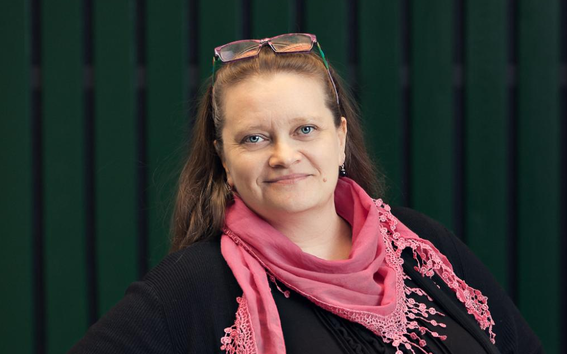Eva Pongracz, University of Oulu
Energy systems and environmental engineering
"The best thing is the people I work with, my colleagues, dedicated project partners, as well as students and researchers, who all share the vision of a sustainable future."

What have you studied and what influenced this choice back in the day?
I have studied mechanical engineering, and this was not planned at all. Up until 18, I was destined to be a math teacher. The reason was mainly because I was good in math and I am from a family of teachers, so it seemed like an obvious choice. Honestly, other opportunities did not even enter my mind, we did not really have career advice services back then (early 80s), neither were women encouraged to consider careers in tech. Mechanical engineering was a last-minute backup choice, when I applied to the university, because they had a “mathematical engineering” orientation, which sounded interesting. Despite encountering countless difficulties as a woman in an engineering university, I am glad I ended up there.
How did you end up in your current position?
In the university, I switched orientation to industrial management, mainly because it was considered more suitable for women. I got interested in marketing communication, and especially advertising. I wanted to be a copywriter after I graduated, but it was not meant to be. I had some short stints as marketing assistant, even tried entrepreneurship, but soon found out this was not really my calling. My first longer job was as governess in the same elementary school, where my father taught. It was sort of continuing the “family business” but, while I liked teaching and working with kids, it was clear that this was not my life career choice either.
Already during the university years, I started to be concerned about environmental issues, especially industrial pollution. When I heard about the opportunity to apply for post-graduate studies, to do a doctoral degree, I immediately knew this is what I wanted to do. I also knew that I wanted to do research in environmental issues. I soon ended up doing waste management research, which was my first passion. I did my PhD in Oulu and continued as postdoctoral researcher there. After that, I continued as head of a small group dealing with applied research in northern environmental technologies at an Arctic Research Institute.
While we did a lot of waste management research, soon most of our projects and research focused on energy issues. Which is why when during a reorganization of the university our group was moved under the Faculty of Technology, we decided to direct our focus to energy and environmental research. Our group got also fairly involved in teaching in the environmental engineering master’s degree programme (MDP) and developed many energy courses.
Funny how I ended up teaching after all that detour. ? I suppose it was my calling.
What is the best thing about your job?
I am professor of energy systems and environmental engineering now, and I am the head of a small group of researchers passionate about environmental issues. Our main objective is to ensure that the transition to a sustainable and climate neutral energy system is a just one and is taking a least- environmental impact path. The best thing is the people I work with, my colleagues, dedicated project partners, as well as students and researchers, who all share the vision of a sustainable future, but also understand that it not something that will just happen. The future is as we make it, and we aim to make a difference. It is hard work being in the driving seat, but it is also the best view. ?
What have been the highlights and key lessons of your career?
Accomplishment and making a difference are the highlights. As most researchers would agree, getting published or gaining a PhD are always memorable milestones. But the real good feeling is when you get feedback that your work inspired somebody else. I am also very proud of all the new courses we developed for the environmental engineering MDP, and especially if we get positive feedback from the students. It is a great feeling that you were able to teach something significant, you helped someone else reach their calling or learn a new skill or help in their career.
What are your plans and goals in the future?
I hope I can continue this work and I hope we can continue to make a difference. Climate change is an existential threat and we all must act to reduce greenhouse gas emissions. I plan to keep doing research and educating people, both in the educational programme and through applied projects, on how to act and do our share in building a sustainable energy future.
What kind of person is suitable for your profession?
Environmental engineering is for all who are passionate about the environment and want to take part in finding solutions to environmental challenges and help protecting the planet. Environmental engineering gives you an opportunity to make a difference. Chose this if you like problem solving, if you are creative and like tactile solutions. Especially if you are a type of person who likes to be involved rather than watch from the sidelines, this is a good career option for you.
Your greetings for young women in high school deliberating their future career?
Find your passion and follow your heart. Do not let others tell what you can or cannot do. Remember only weak and insecure people put others down. Truly strong and confident people lift others up and let them shine. Do not buy into stereotypes, technology needs diversity. Diversity is strength and you can make a difference. Remember the future is what you make it, and technology makes dreams solid. Dream big, aim high and believe in yourself!